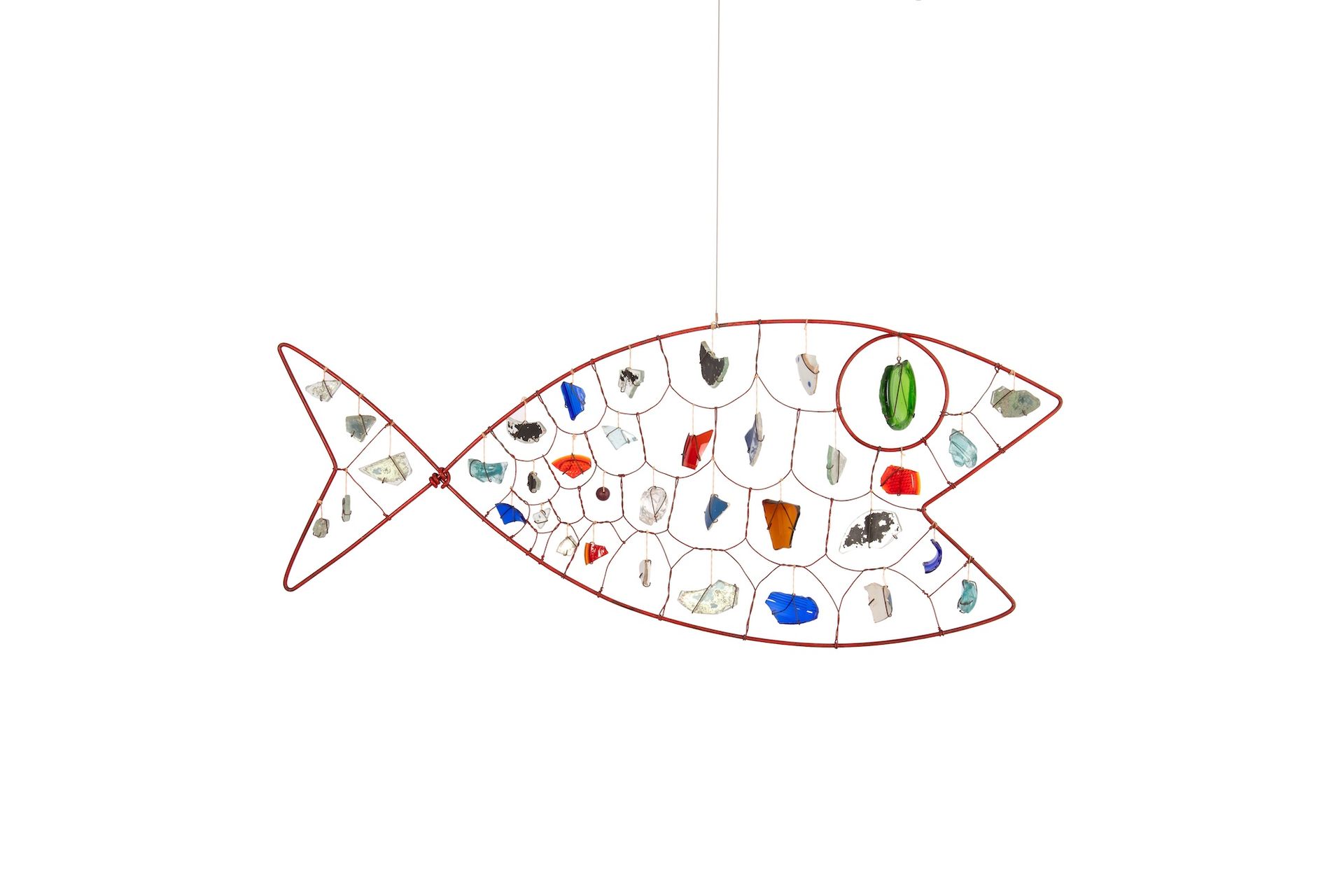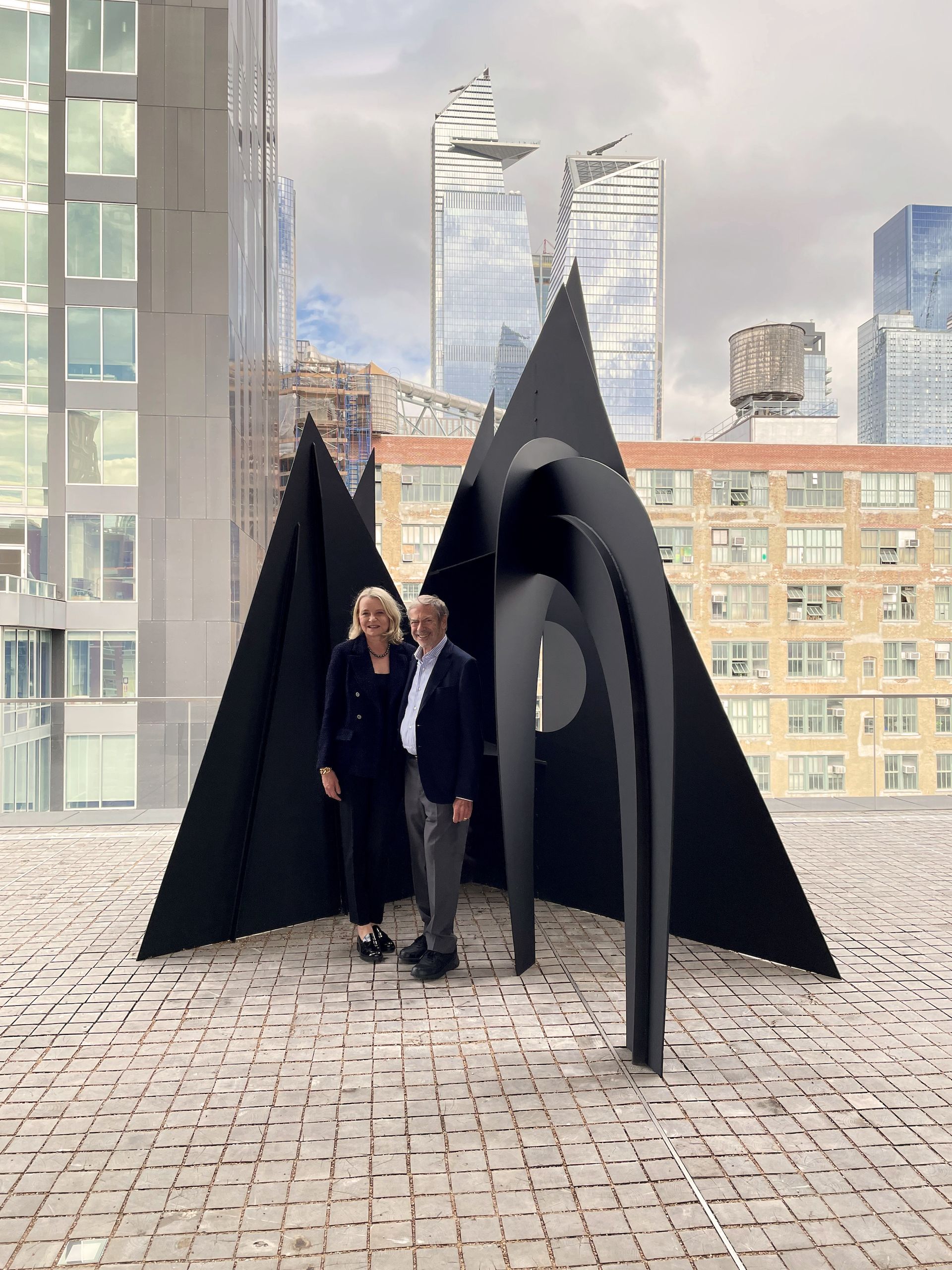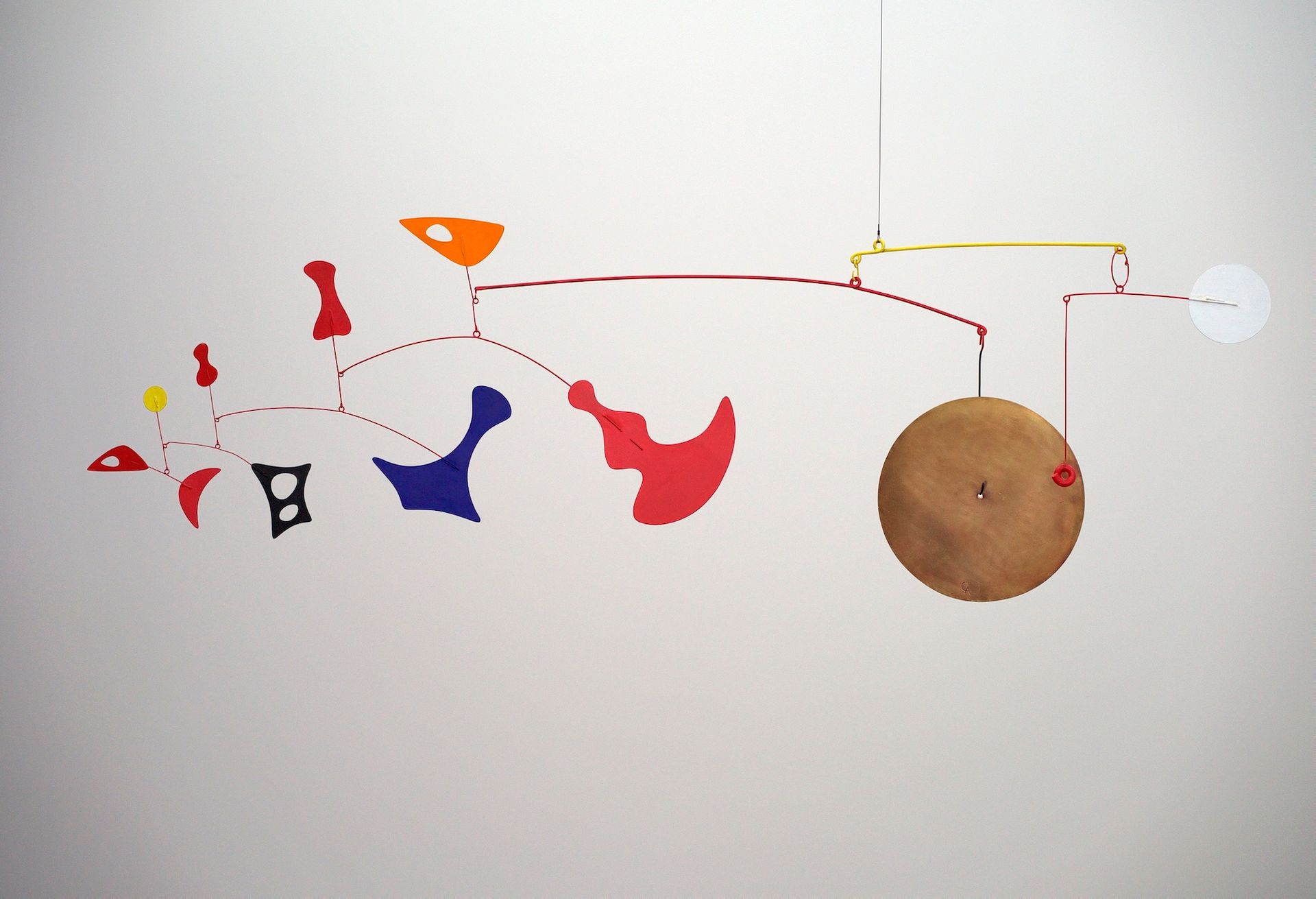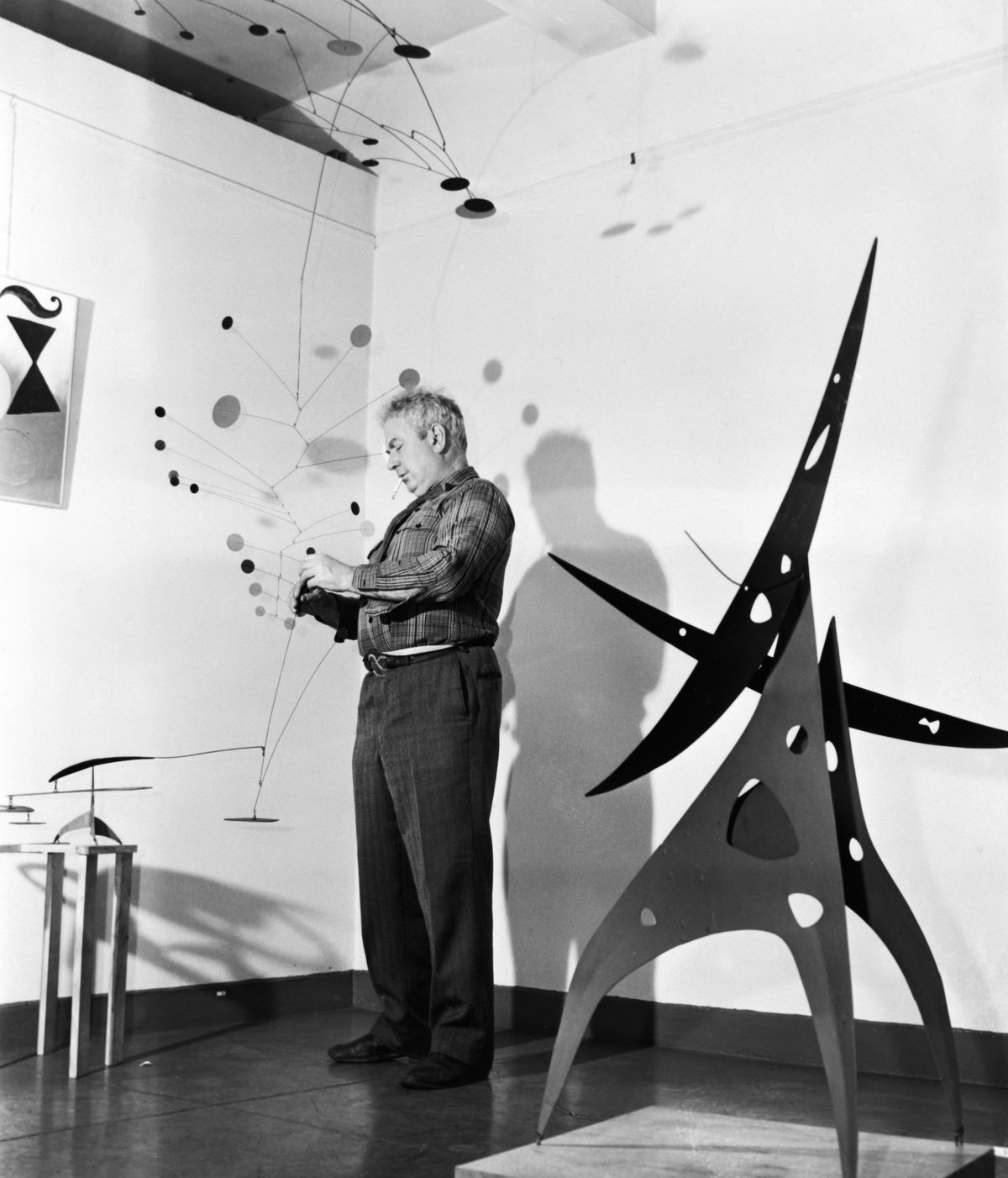In one fell swoop, the Seattle Art Museum (SAM) has become home to one of the world’s foremost collections of works by the American Modernist sculptor Alexander Calder. Whereas its previous holdings of his works, numbering 13 pieces, consisted almost entirely of works on paper, it has just received a symbolically and actually enormous gift of the artist’s works from former Microsoft president Jon Shirley and his wife Kim.
The 48 works gifted by the Shirleys include more than three dozen sculptures, ranging from tabletop stabiles to monumental hanging mobiles and encompassing most of Calder’s career, spanning 1927 to 1973. Among them are figurative works like the playful wire sculpture Cow (around 1930) and the rare Fish (1942), an example of his resourceful use of alternate and found materials like glass and porcelain when metal became scarce during the Second World War. The gift also includes textbook examples of Calder’s classical style from the late 1940s such as the intricate mobile Gamma (1947), as well as bulkier, more colourful works from later in his career, like the large standing mobile Red Curly Tail (1970).

Alexander Calder, Fish, 1942 © 2023 Calder Foundation, New York / Artists Rights Society (ARS), New York, photo: Nicholas Shirley
In addition to the works, the Shirleys are giving the SAM their 85-book Calder library, a $10m endowment and between $250,000 and $500,000 annually to support Calder-centric programming and research. The first instalment of that ongoing support, a gift of $1m, will go toward mounting an exhibition featuring all 48 works from the Shirleys’ gift, which will open in November.
“Calder is an artist whose work is seemingly ubiquitous,” SAM director and chief executive Amada Cruz said in a statement. But, she added, “we’ve lost sight of the enormous artistic innovations that he was responsible for—from pioneering wire sculpture to inventing the mobile—and the tremendous impact he has had on artists of the 20th and 21st century. The extraordinary generosity of Jon and Kim Shirley allows us to explore the many facets of this creative genius.”

Jon and Kim Shirley with Alexander Calder's Mountains (1:5 intermediate maquette, 1976) at Pace Gallery in New York © 2023 Calder Foundation, New York / Artists Rights Society (ARS), New York. Photo courtesy Jon and Kim Shirley
The Shirleys are longtime supporters of the SAM and both currently serve on its board of trustees, of which Jon was the chairman from 2000 to 2008. With his late wife Mary, Jon also gave the museum the founding gift that permitted the construction of its public art venue, the Olympic Sculpture Park. Jon and Mary also provided the funds that allowed the museum to acquire Calder’s 38ft-tall sculpture The Eagle (1971), one of the the iconic fixtures of Olympic Sculpture Park.
“From the moment I bought my first work 35 years ago, I treasured the experience of living with Calder and from that point built my collection very intentionally,” Jon—who served as Microsoft’s president and chief operating officer from 1983 to 1990 and served on its board until 2008—said in a statement. “I visited the seminal Calder exhibition at the National Gallery in 1998 and soon thereafter decided to build a truly museum-worthy collection of his work.” He has also built a museum-worthy collection of vintage sports cars.

Alexander Calder, Dispersed Objects with Brass Gong, 1948 Photo courtesy of Calder Foundation, New York / Art Resource, New York. © 2023 Calder Foundation, New York / Artists Rights Society (ARS), New York.
The SAM will devote its double-height gallery space to Calder-related exhibitions, beginning with the show of the Shirleys’ gift. In 2024, the space will host a group show placing his work in dialogue with pieces by contemporary sculptors.
Seattle is not the only city vying to be a destination for Calder buffs. The New York-based Calder Foundation is building a new institution in Philadelphia, Calder Gardens, to showcase his work. Calder was born in a suburb of Philadelphia. That institution is expected to open in 2024.


